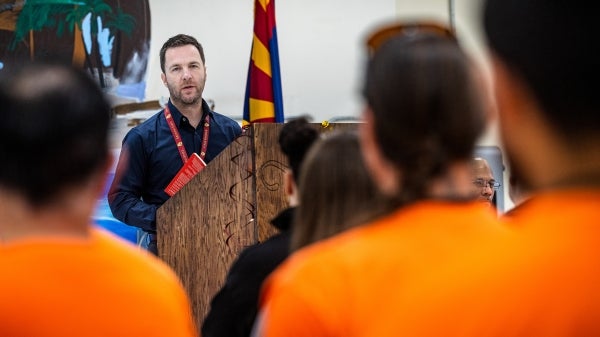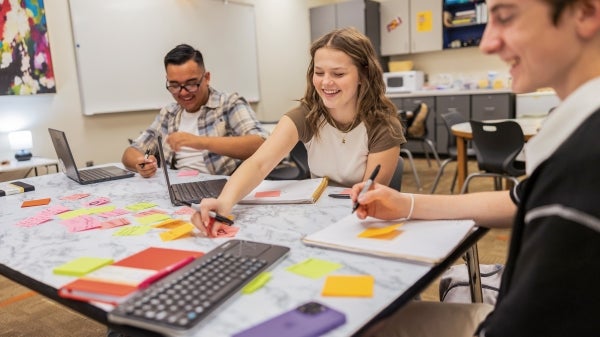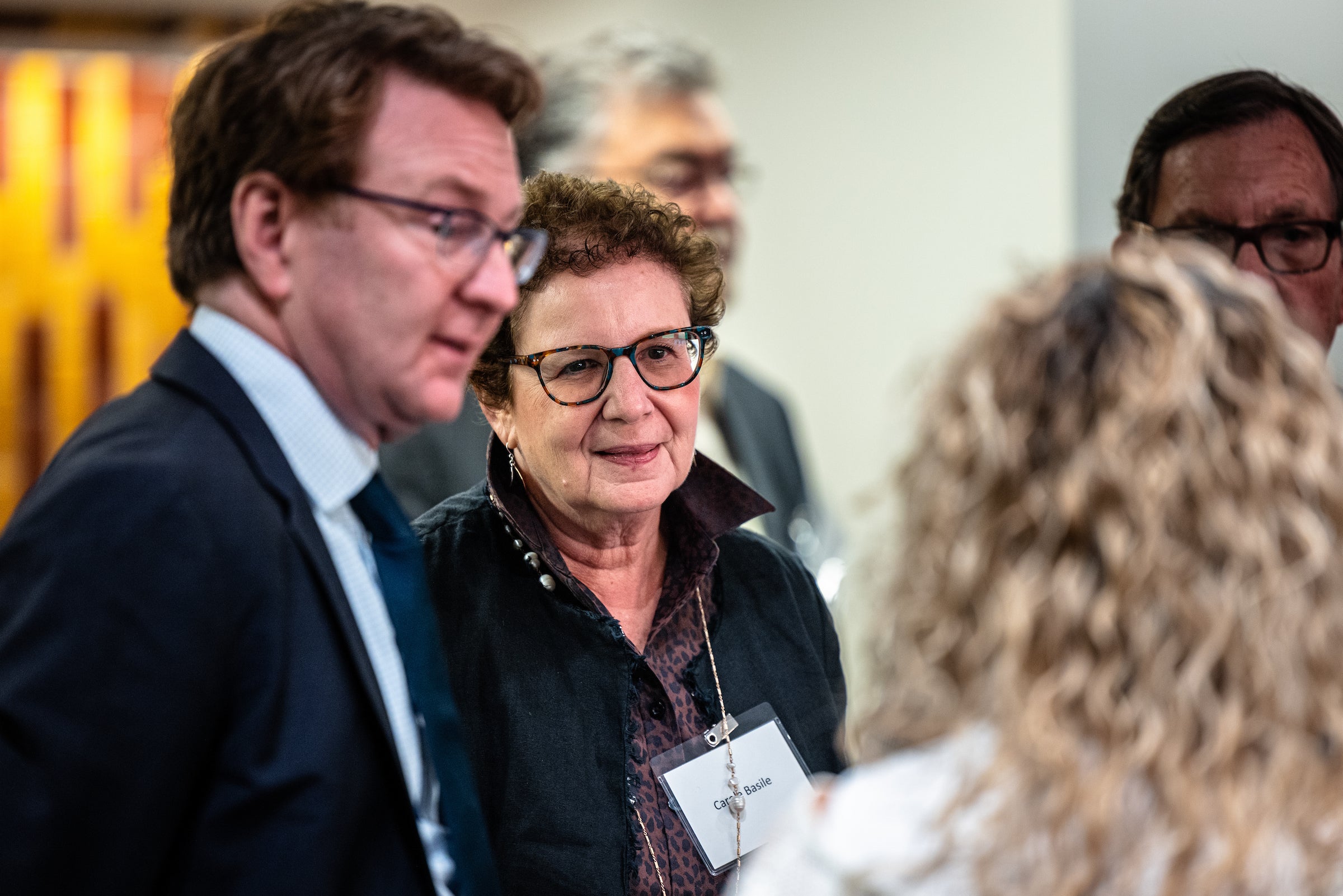Editor's note: This story is part of our coverage of a weeklong series of events to mark ASU's expansion in California at the ASU California Center in downtown Los Angeles.
Arizona State University has created a new kind of team-teaching model that’s intended to improve student learning but also empower teachers to leverage their expertise.
“A lot of people say there’s a teacher shortage,” said Lisa Cannon, senior program manager for the Next Education Workforce Initiatives at ASU’s Mary Lou Fulton Teachers College.
“That isn’t new. But what if we don’t look at it as a teacher shortage but as a workforce design model problem?”
Cannon spoke at a panel discussion Tuesday morning titled “The Next Normal: Galvanizing Educators, Communities and Technology Around P–12 Learners,” part of a week of events celebrating the new California Center in downtown Los Angeles.
“If you think about one teacher and one classroom, it’s all the expectations we have for that one human being. We expect them to know all the latest and greatest and have all the pedagogical skills and meet the needs of all students,” she said.
Schedules are inflexible and teachers are isolated, lack autonomy and feel disrespected.
In the team model, educators of varying levels of experience, background and expertise work with larger groups of students. A longtime, National Board Certified teacher who’s good at teaching reading might work with a new teacher whose background is in social media and a math specialist who used to be an engineer.
“So we look at a team-based model to provide deeper, personalized learning, so kids have access to multiple adults and learn off multiple kinds of expertise,” Cannon said.
“One of the tools we provide is creating a distributed expertise document,” she said.
“We would sit with teams and go over all the skills they have and document them. And then what are the needs of our students?
“Though it’s important to know who’s great at teaching reading, we also want to know who’s good at social and emotional learning and who has access to business partners that we can bring in for project-based learning.”
Carole G. Basile (center), dean of the Mary Lou Fulton Teachers College, joins others in a brief conversation on education at the panel discussing “The Next Normal: Galvanizing Educators, Communities and Technology Around P–12 Learners” on Tuesday, Oct. 4. Photo by Charlie Leight/ASU News
The model is now being used in 50 schools with 12,000 students, according to Brent Maddin, executive director of Next Education Workforce Initiatives at the Mary Lou Fulton Teachers College.
“We have a team of educators and it’s no longer isolating. It’s no longer lonely,” he said.
Special education teachers are integrated into the teams and no longer feel “secondary,” he said.
In addition to the inequities highlighted by the pandemic, educators in California are facing several new challenges, according to Stephanie Houston, assistant superintendent of innovation and engagement, San Bernardino County Superintendent of Schools office.
The state is adding 30 days to the school calendar, for a total of 210; three hours to the school day, for a total of nine hours; and universal pre-kindergarten.
California teachers have a strong labor union, so it’s crucial to include the unions from the very beginning of any efforts at reform, Houston said.
“We brought in the teachers’ association president from the beginning and we brought in the human resources team from the beginning,” she said.
“Everybody had questions and terminology matters.”
Maddin said that the team-teaching model aligns with many union priorities.
“Part of this is that if the educators don’t have protected time together as a team, this will 100% fail,” he said.
“And that’s something teachers’ unions are interested in — having protected time together.”
Collaborating with industry partners is another key aspect of the model — if the business leaders are on board with the mission, according to Megan Hanley, director of strategic initiatives for ASU Preparatory Academy.
“They have to care that education means something and is a gateway for students’ success. They have to really believe that,” she said.
They also have to know what their workforce is missing.
“What have they seen in the newest batch of people they’ve hired? Is it collaboration or communication or design thinking?
“We are begging for them to come into schools.”
Maddin said that teachers in the team model feel more satisfied, collaborate more, believe they have better student interactions and believe that their students received better instruction during the pandemic period.
“We fundamentally believe this is a moment to think about how can we staff our schools differently and take a bold, decisive direction,” he said.
Top photo: Dulce Vasquez, assistant vice president of strategic advancement in the Office of University Affairs at ASU, introduces the panel on “The Next Normal: Galvanizing Educators, Communities and Technology Around P–12 Learners” on Oct. 4 at the ASU California Center in downtown Los Angeles. Photo by Charlie Leight/ASU News
More Arts, humanities and education

ASU professor, Arizona inmate work to rehabilitate the 'imprisoned mind'
An Arizona State University professor has collaborated with an Arizona inmate on a book that examines why investing in healing prisoners would benefit everyone.“Imprisoned Minds: Lost Boys, Trapped…
Illuminating legacy at ASU
In 2020, the ASU Art Museum unveiled a groundbreaking installation, "Point Cloud (ASU)," by renowned artist Leo Villareal. The art piece was given a permanent home on the Tempe campus in 2024 thanks…

Name change for ASU's Mary Lou Fulton Teachers College reflects college's mission
Arizona State University’s Mary Lou Fulton Teachers College has a new name: the Mary Lou Fulton College for Teaching and Learning Innovation.The name change, which will be completed in time for the…

